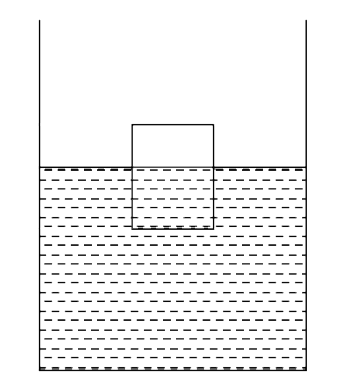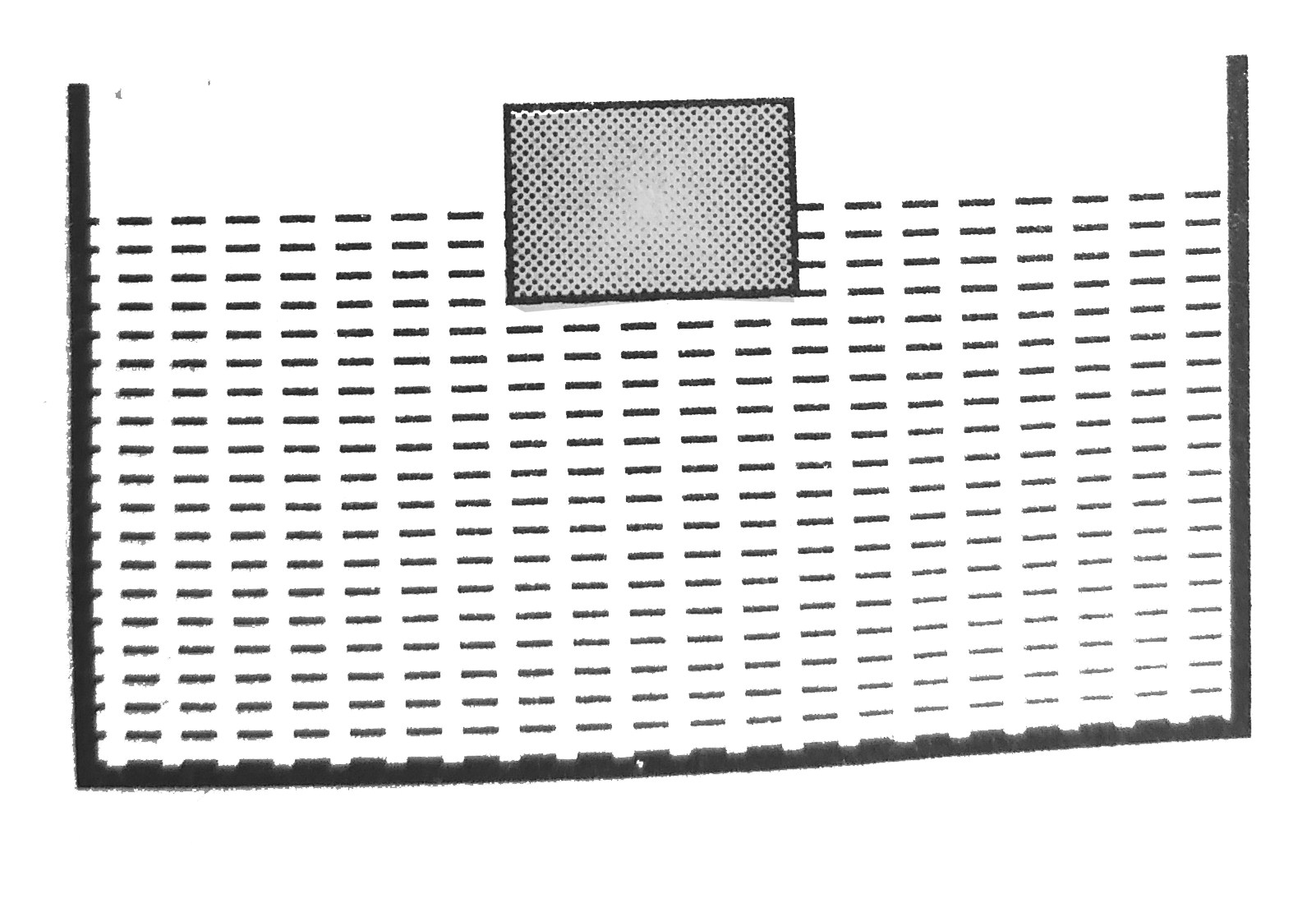A beaker contains a liquid of volume V0. A solid block of volume V floats in the liquid with 90% of its volume submerged in the liquid. The whole system is heated to raise its temperature by Δθ. It is observed that the height of liquid in the beaker does not change and the solid in now floating with its entire volume submerged. Calculate Δθ. It is given that coefficient of volume expansion of the solid and the glass (beaker) are γs and γg respectively.

The correct Answer is:Δθ=0.1(V0−V)(0.9V0+V)γs−(V0+0.9V)γg
Topper's Solved these Questions
Similar Questions
A block of density ρ floats in a liquid with its one third volume immersed. The density of the liquid is
View SolutionA cubical block is floating in a liquid with half of its volume immersed in the liquid.When the whole system accelerates upward with a net acceleration of g/2 the fraction of volume immersed in the liquid will become
View Solution
Knowledge Check
A block of density ρ floats in a liquid with its one third volume immersed. The density of the liquid is
AρBρ3Cρ2D3ρA cubical block is floating in a liquid with half of its volume immersed in the liquid. When the whole system accelerates upwards with a net acceleration of g/4, the fraction of volume immersed in the liquid will be
A12B14C34D38A cubical block is floating in a liquid with half of its volume immersed in the liquid. When the whole system accelerates upwards with acceleration of g/3, the fraction of volume immersed in the liquid will be
 A12B38C23D34
A12B38C23D34
A cubical block is floating in a liquid with half of its volume immersed in the liquid.When the whole system accelerates upward with a net acceleration of g/2 the fraction of volume immersed in the liquid will become
View SolutionA cubical block is floating in a liquid with one fourth of its volume-immersed in the liquid. If whole of the system accelerates upward with acceleration g/4, the fraction of volume immersed in the liquid will be
View SolutionA cubical block is floating in a liquid with half of its volume immersed in the liquid. When the whole system acelerates upwards with a net acceleration of g/3. The fraction of volume immersed in the liquid will be 3x Find x.
View SolutionA block of wood floats in a liquid in a beaker with 3/4ths of the its volume submerged under the liquid.If the beaker is placed is in an enclosure that is falling freely under gravity, the block will :
View SolutionA cubical block is floating in a liquid with one fourth o its volume immersed in the liquid. If whole of the system accelerates upward with acceleration g/4, the fraction of volume immersed in the liquid will be :-
View Solution
